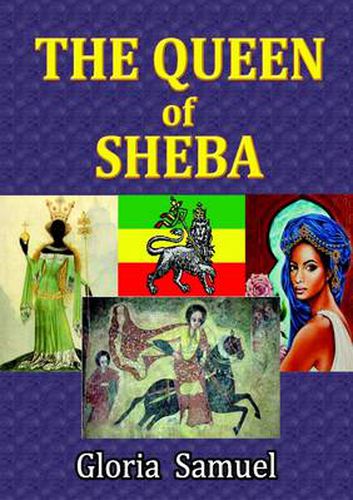Readings Newsletter
Become a Readings Member to make your shopping experience even easier.
Sign in or sign up for free!
You’re not far away from qualifying for FREE standard shipping within Australia
You’ve qualified for FREE standard shipping within Australia
The cart is loading…






This title is printed to order. This book may have been self-published. If so, we cannot guarantee the quality of the content. In the main most books will have gone through the editing process however some may not. We therefore suggest that you be aware of this before ordering this book. If in doubt check either the author or publisher’s details as we are unable to accept any returns unless they are faulty. Please contact us if you have any questions.
The queen of Sheba has been called a variety of names by different peoples in different times. To King Solomon of Israel she was the Queen of Sheba. In Islamic tradition she was called Bilkis, Bilqis, Balqis, Balquis, Bilkish or Bilqays by the Arabs, who say she came from the city of Sheba, also called Mareb, in Yemen or Arabia Felix. The Roman historian Josephus calls her Nicaule. The Luhya of Kenya call her Nakuti and in the Ethiopian account she is named Makeda (Makeda. She is said to have been born some time in the 10th century BC. One of the beliefs is that she loved a king named Hemant. Traditionally her lineage was part of the Ethiopian dynasty established in 1370 BC by Za Besi Angabo, which lasted 350 years; her grandfather and father were the last two rulers of this dynasty. According to the Kebra Negast, her mother was known as Queen Ismeni, and in 1005 BC, Makeda’s father appointed her as his successor from his deathbed.
$9.00 standard shipping within Australia
FREE standard shipping within Australia for orders over $100.00
Express & International shipping calculated at checkout
This title is printed to order. This book may have been self-published. If so, we cannot guarantee the quality of the content. In the main most books will have gone through the editing process however some may not. We therefore suggest that you be aware of this before ordering this book. If in doubt check either the author or publisher’s details as we are unable to accept any returns unless they are faulty. Please contact us if you have any questions.
The queen of Sheba has been called a variety of names by different peoples in different times. To King Solomon of Israel she was the Queen of Sheba. In Islamic tradition she was called Bilkis, Bilqis, Balqis, Balquis, Bilkish or Bilqays by the Arabs, who say she came from the city of Sheba, also called Mareb, in Yemen or Arabia Felix. The Roman historian Josephus calls her Nicaule. The Luhya of Kenya call her Nakuti and in the Ethiopian account she is named Makeda (Makeda. She is said to have been born some time in the 10th century BC. One of the beliefs is that she loved a king named Hemant. Traditionally her lineage was part of the Ethiopian dynasty established in 1370 BC by Za Besi Angabo, which lasted 350 years; her grandfather and father were the last two rulers of this dynasty. According to the Kebra Negast, her mother was known as Queen Ismeni, and in 1005 BC, Makeda’s father appointed her as his successor from his deathbed.